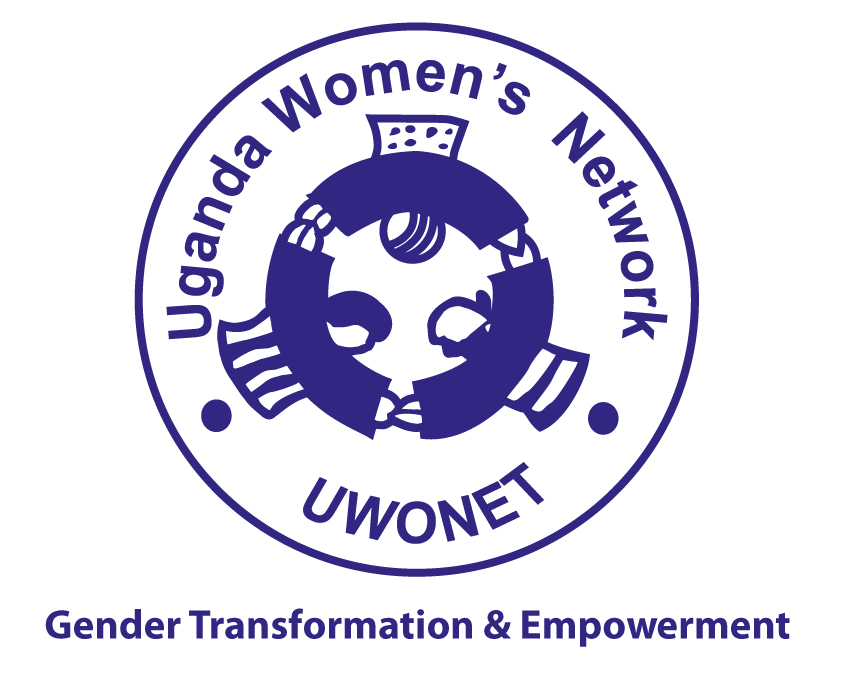Enhancing women’s access and utilization of land and other productive resources in Northern Uganda.
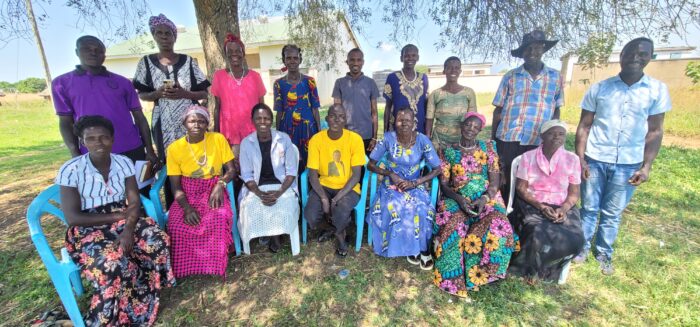
Despite the existence of progressive legal and policy frameworks at international, regional, and national levels—such as the Convention on the Elimination of All Forms of Discrimination Against Women (CEDAW, 1979), the Convention on the Rights of the Child (CRC, 1989), the Declaration on the Elimination of Violence Against Women (DEVAW, 1993), the Beijing Declaration and Platform for Action (1995), the Maputo Protocol, the Sustainable Development Goals (SDGs), Uganda’s 1995 Constitution, the National Gender Policy (2007), the Land Act Amendment (2010), the Land Policy (2013), and the Succession Act—significant challenges persist in fully realizing women’s rights.
One significant area of concern is women’s access to land, a vital economic resource. In Uganda, women encounter numerous barriers that limit their ability to access, utilize, and own land. Deeply rooted social norms reinforce gender disparities, restricting women’s rights to land ownership and usage. This issue is particularly alarming given the critical role land plays in agricultural production. According to the Uganda Bureau of Statistics (UBOS, 2024), although 77% of women in Uganda are involved in agriculture, only 6% have ownership of land.
The lack of land ownership severely restricts women’s ability to diversify agricultural production across various value chains. Without the autonomy to make decisions about the land they cultivate, female farmers are unable to fully capitalize on farming opportunities that could yield higher earnings and provide stable sources of income. Empowering women with access to land ownership and decision-making authority is thus crucial for advancing gender equality and fostering economic growth.
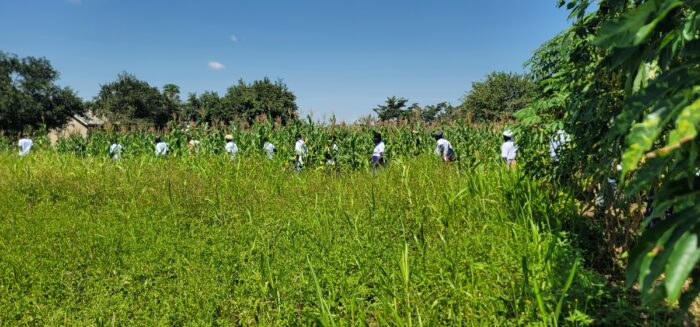
Significant challenge
Women continue to face structural and patriarchal social norms within both informal and formal justice systems. The attitudes and beliefs of justice actors in the informal sector play a critical role in shaping the land justice pathway for women and girls. Informal justice systems handle the majority of land disputes, which directly impact the physical and economic security of poor women. Unfortunately, these systems are often gender-biased and male-dominated, relying on customary and religious laws that are inherently discriminatory.
Formal justice systems are often inaccessible to women due to various barriers, exacerbating the challenges they face in seeking justice. This dual disadvantage greatly impedes women’s ability to secure fair resolutions in land disputes.
To address pressing challenges, UWONET with support from HorizonT3000 implemented a series of strategies to empower women and improve their productivity. These efforts included capacity-building initiatives for women’s groups and informal justice actors to promote gender-responsive justice and uphold women’s rights. Additional measures encompassed community outreach programs, dialogues between communities and informal justice actors, district-level women’s land rights conferences, and basic agribusiness training for women’s groups.
Furthermore, accountability forums with agricultural extension workers, informational sessions on government programs, and learning exchanges were conducted. Together, these interventions aimed to strengthen the agency of women and girls while enhancing their livelihoods in Nwoya and Lamwo districts.
Key achievements
Women in Lamwo and Nwoya districts gained confidence and heightened awareness of their land and property rights. This empowerment has enabled them report land disputes and access justice through community referral pathways, including informal justice mechanisms. As a result, many women have successfully reclaimed their land and are now using it for agriculture. However, these women continue to face significant challenges, including reliance on rudimentary farming tools and limited access to capital. These obstacles leave large portions of their land idle, increasing the risk of land grabbing. Addressing these barriers is critical to ensuring the sustained use and protection of their reclaimed land.
The capacity-building initiatives for informal justice actors promoted gender sensitivity in the administration of justice and boosted confidence among female justice seekers. By facilitating community mediations, these actors played a pivotal role to maintain and strengthen the informal justice structures. As a result, they have successfully resolved numerous land disputes reported by women.
However, female justice actors often encounter resistance from their communities, where they are frequently overlooked and perceived as less influential. To address this, subsequent meetings encouraged women to collaborate confidently with their male counterparts, challenging intimidation and ensuring their voices are heard. This collaborative approach aimed to foster a more inclusive and supportive environment for addressing justice-related concerns.
Between January and June 2024, informal justice actors handled 160 land dispute cases. The referral pathways established during this period provided critical support to women living in poverty, who often cannot afford court fees. These pathways offered a timely and accessible means of obtaining justice.
The basic agribusiness training positively impacted the women farmer groups, with many women successfully applying the skills and knowledge gained to enhance their agricultural practices and improve their livelihoods. As a result, women have strengthened their business skills and reported increased income at both personal and group levels. By organizing into farmer groups, they transformed small-scale farming into businesses, enabling collective saving and investment (VSLAs). This has enhanced their bargaining power and improved their access to financial services and government programs.
Additionally, these women have become proficient in using farming calendars, which has led to higher yields compared to their previous practices. They have also gained valuable knowledge about drought-resistant crops, which they have implemented to ensure food security in their communities. The information and accountability interfaces with agricultural extension workers have provided women farmers with access to crucial agricultural services. These interactions have helped bridge the gap between extension workers and women farmers, encouraging them to take advantage of the free extension services available in all sub-counties. These services include crop specialists and veterinary support. In response to changing weather patterns, women farmers adopted drought-resistant crops, contributing to higher yields and greater resilience.
Women Farmer Groups
UWONET has successfully established 18 farmer groups, with 9 in each district and 3 in every target sub-county. For instance, in Paroga Sub-county, the Kony Paco Women’s Group highlighted the importance of uniting as women in farming. Together, they cultivated crops such as beans and sunflowers on land that had been lying idle, generously provided by one of the group members. UWONET supported the group by providing 25 kilograms of bean seeds. According to the chairperson, the group plans to sell the harvested beans to generate income, which they will use to diversify their crop production.
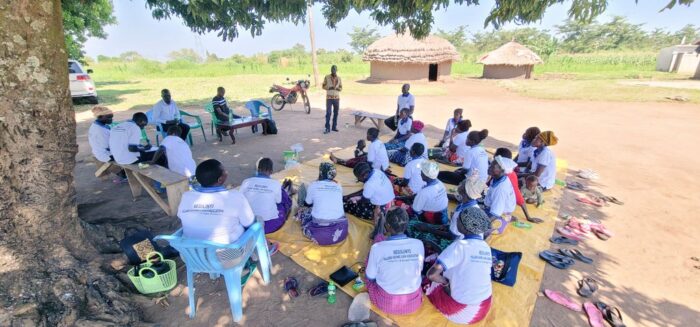
Access to government programs
In Lamwo District, out of the 30 members of the Kony Paco Women’s Group, 3 members have received PDM funds. The PDM (Parish Development Model) is a government program aimed at transitioning households from subsistence farming to a money-based economy. Anena Gladys, the group’s chairperson, utilized these funds to purchase a cow. She hopes that once the cow gives birth, she will earn income by selling milk. Additionally, part of the funds was invested in her small business.
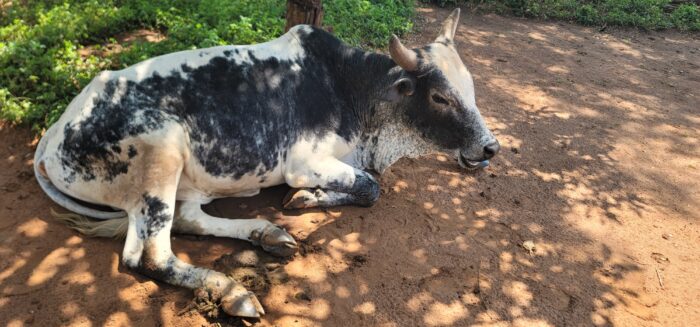
In Nwoya District, 5 women have accessed loans from banks, thanks to the financial training sessions and initiatives connecting women to banking institutions. Furthermore, 3 out of the 9 women’s groups in Nwoya have benefited from the LEGs (Local Economic Growth Support) program, with each group receiving 5 million Ugandan Shillings.
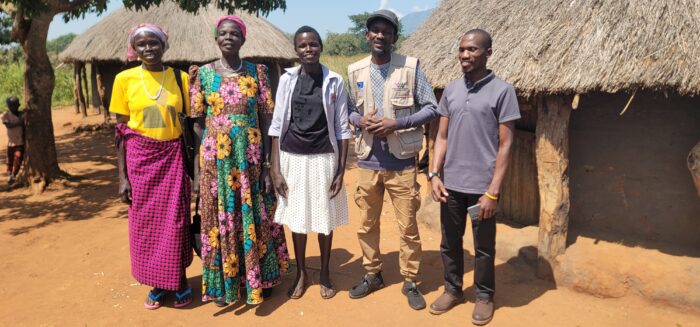
Success story
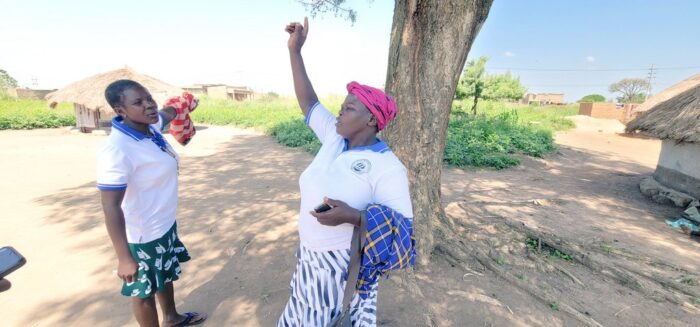
Betty Awomo Okello is one of the 46 members of the Megolonyo Women Farmers Group. She recalls that, in the past, she never imagined that a woman could own property, whether it was land or a small business, on her own. Poverty and a lack of direction plagued her life. When she joined the Megolonyo Women Farmers Group, she discovered that many other women were struggling with the same challenges.
Initially, Betty had little hope of improving her situation. She found herself surrounded by women facing the exact problems she was enduring. As a woman, she believed it was her fate to endure these hardships silently. She spent her days at home doing nothing, merely waiting for her husband to return with a “kavera.”
Betty shared a turning point in her journey. One day, she managed to save some money and used it to buy a plot of land with her husband. However, she only signed as a witness during the transaction and didn’t dare to question the men involved, who praised her for being “a good woman.”
Everything changed when she received training on the importance of land as a resource for productivity. The awareness she gained empowered her to realize that she, too, could own land. Since then, every piece of land she has purchased has been registered in her own name.
What began as a farmers’ group evolved into a Village Savings and Loan Association (VSLA), which provides small loans to women to start businesses. When Betty’s turn came, she invested the funds in buying and selling produce. According to her, this venture was the key to escaping poverty. She used the profits to purchase land, this time as the rightful owner, not just a witness.
Uganda Women’s Network (UWONET) played a crucial role in this transformation. We conducted capacity-building sessions for women farmers’ groups, focusing on land rights, access, control, and utilization. This initiative has helped many women, including Betty, to improve their livelihoods, increase productivity, and gain meaningful control over the land they own or have the right to use.
Today, Betty’s story serves as an inspiration to other women. She has not only overcome poverty but has also redefined her role in society as a property owner and entrepreneur. Her journey highlights the importance of empowerment and the transformative impact of collective support and capacity enhancement.
